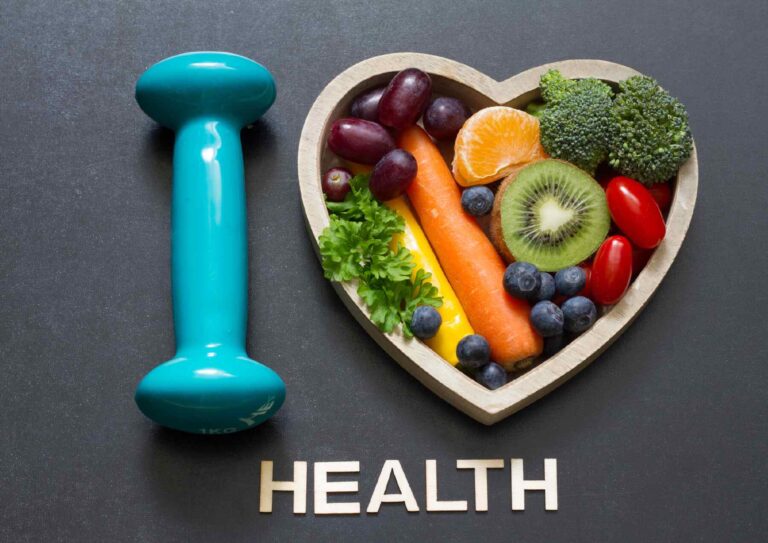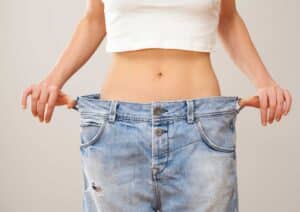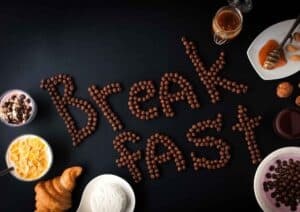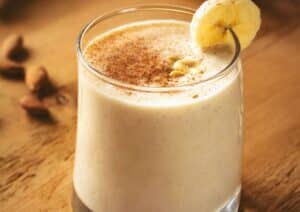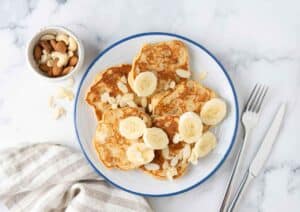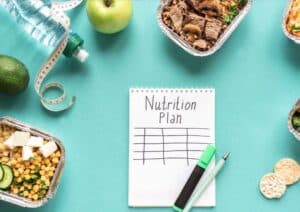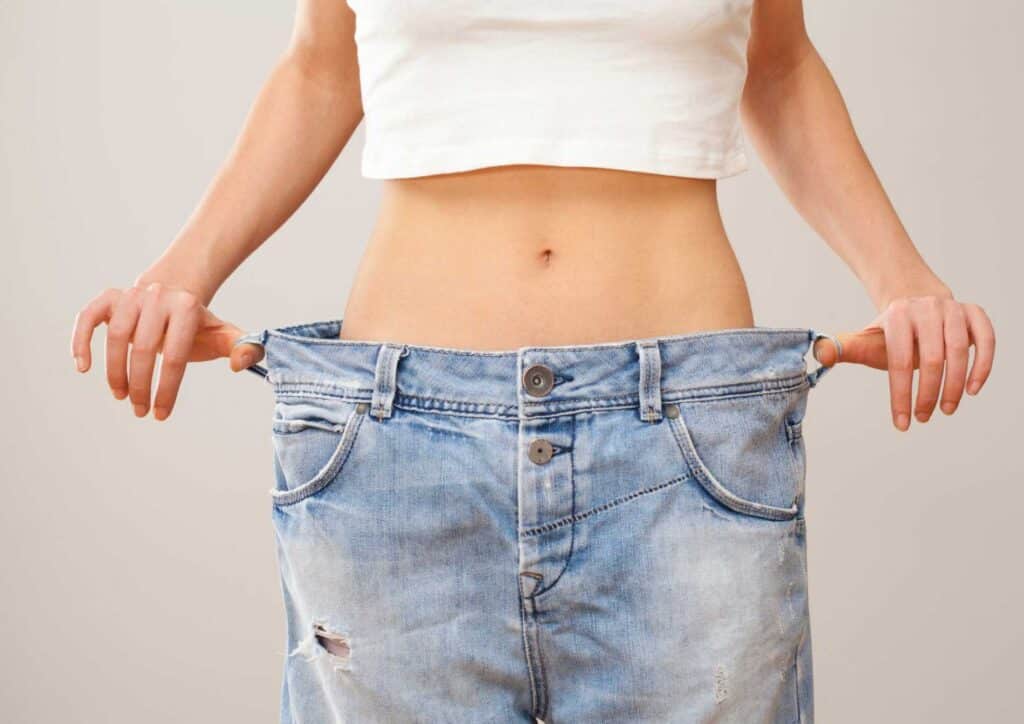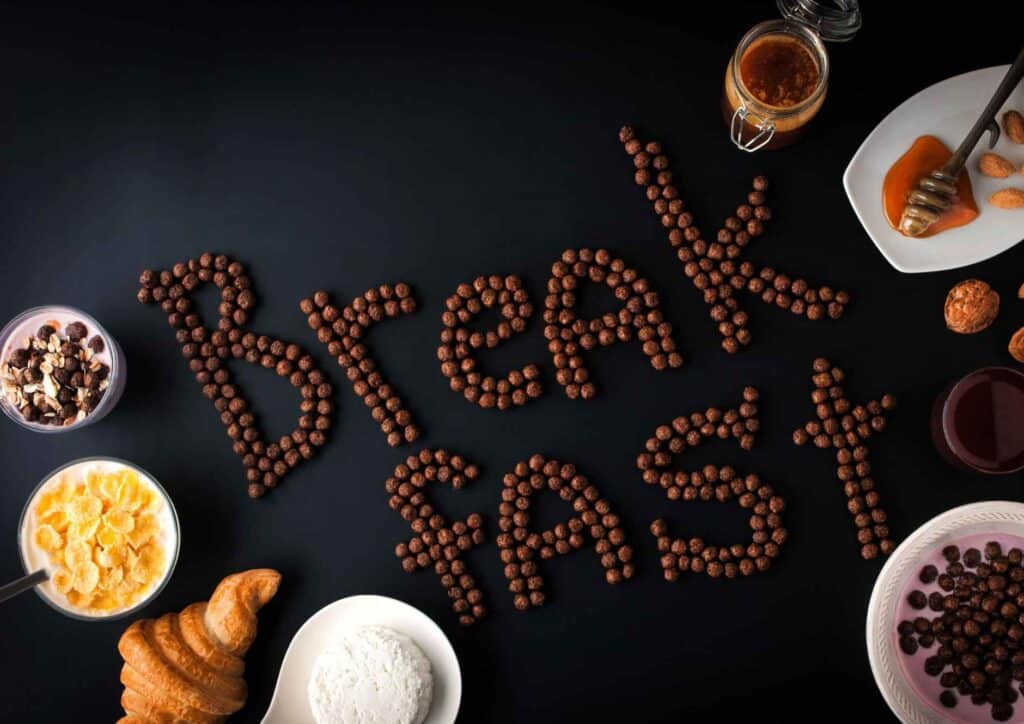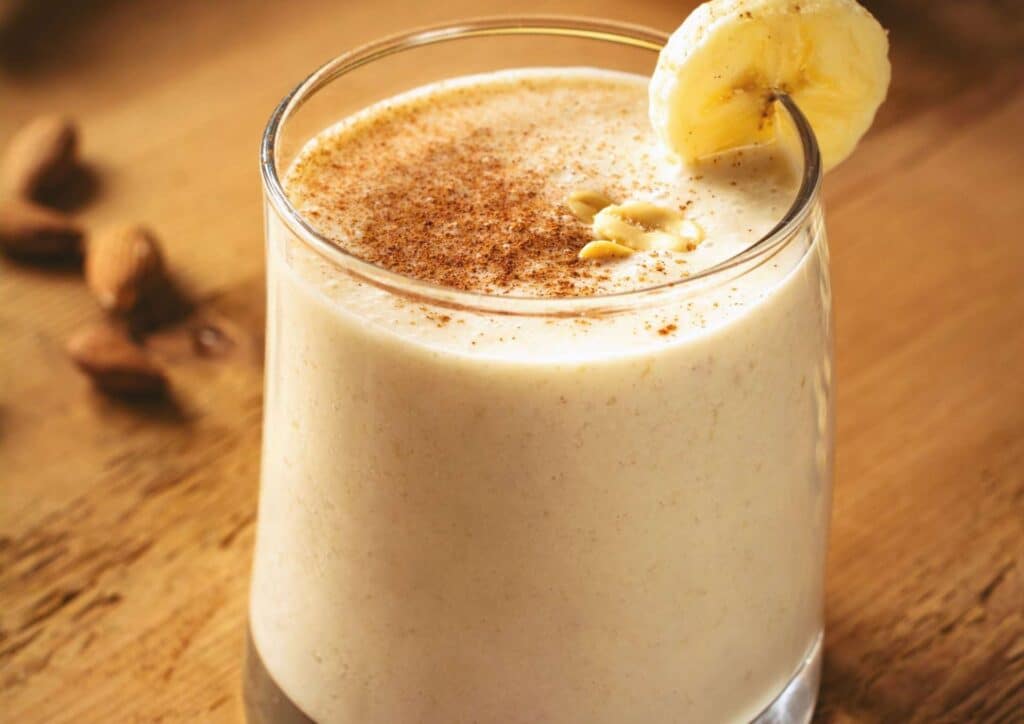High Protein Banana Smoothie For Weight Loss
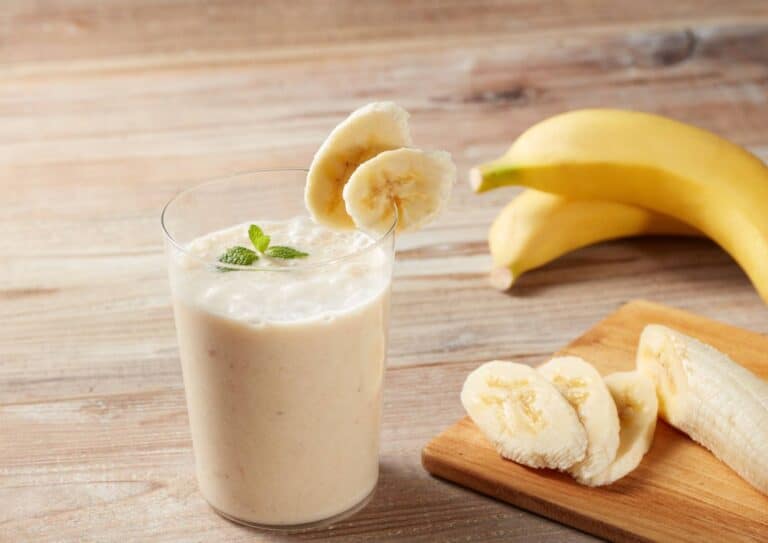
Smoothies have become a staple in my practice—not because they’re trendy, but because they work. As a leading weight loss nutritionist in Sydney, I’ve seen how a well-crafted smoothie can help clients feel fuller for longer, stabilise energy levels, and support fat loss without resorting to restrictive dieting. If you’re looking for expert guidance, I’m Jake Biggs—and I specialise in sustainable, results-driven nutrition strategies tailored to your lifestyle.
This high protein banana smoothie is one I’ve recommended to countless clients in my clinic. It’s simple, satisfying, and backed by science. Whether you’re starting your day or recovering after a workout, this blend delivers the nutrients your body needs to burn fat efficiently and stay energised.
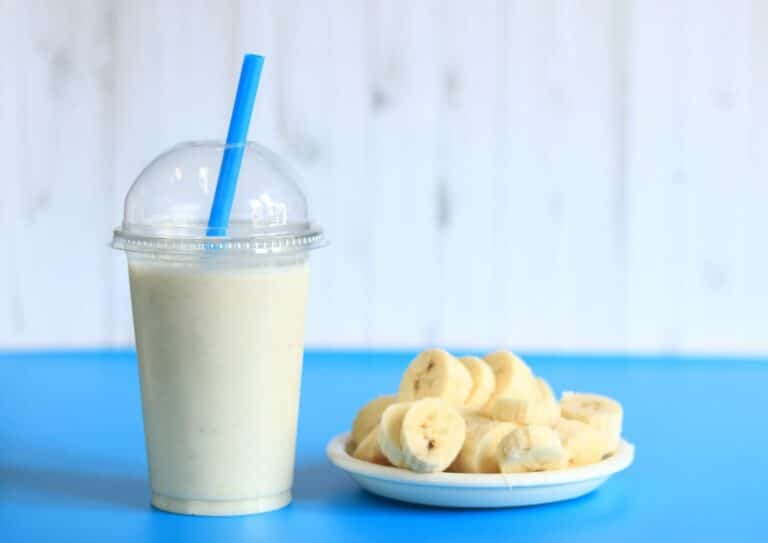
High Protein Banana Smoothie for Weight Loss! What you will learn:
Introduction
When I work with clients on sustainable weight loss, one of the first things I address is how to build meals that actually satisfy. Smoothies are a brilliant tool for this—especially when they’re high in protein, rich in fibre, and low in added sugars. But not all smoothies are created equal. Many are overloaded with fruit, juice, or poor-quality protein powders that spike insulin and leave you hungry an hour later.
This article breaks down the science behind a truly effective weight loss smoothie, and I’ll share my go-to recipe that’s helped many of my clients feel fuller, lose fat, and stay consistent.
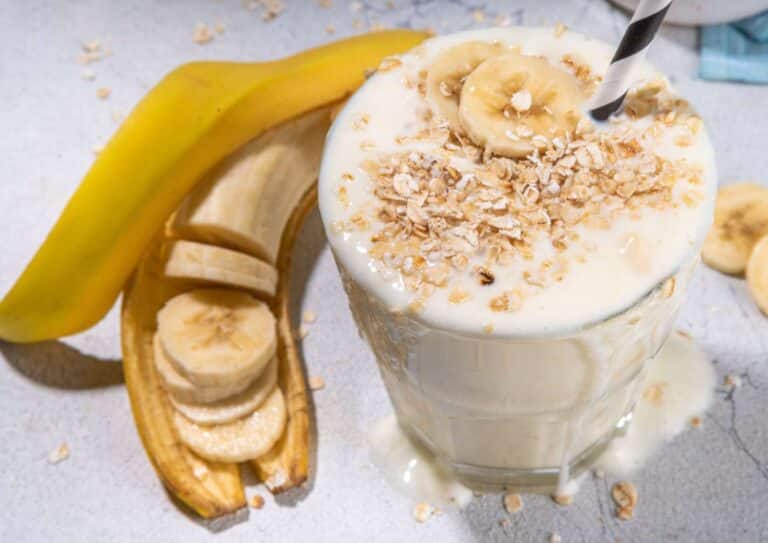
Why Protein Is Essential for Sustainable Fat Loss
Protein is the foundation of any effective fat loss strategy. It’s not just about building muscle—it’s about preserving lean mass, regulating hunger hormones, and increasing thermogenesis (your body’s calorie-burning process).
Why I Prioritise Protein with Clients
Satiety: Protein increases levels of peptide YY and GLP-1—hormones that help you feel full.
Muscle Preservation: When you’re in a calorie deficit, protein helps maintain lean tissue and keeps your metabolism stable.
Thermic Effect: Your body burns more calories digesting protein than it does carbs or fats.
Backed by Research
A 2015 study in The American Journal of Clinical Nutrition found that people eating 30% of their calories from protein had fewer cravings and less late-night snacking.
A 2019 meta-analysis in Obesity Reviews showed that high-protein diets led to greater fat loss and better body composition than standard diets.
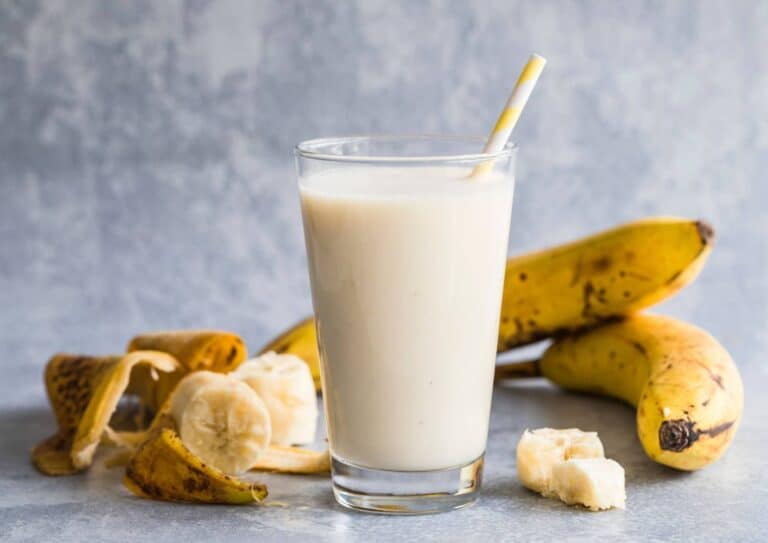
The Role of Bananas in Weight Management
Bananas get unfairly criticised in weight loss circles. Yes, they contain natural sugars—but they also offer resistant starch, fibre, and potassium, which all support fat loss when used properly.
Why I Use Bananas in Smoothies
Resistant Starch: Slightly underripe bananas contain resistant starch, which feeds good gut bacteria and improves insulin sensitivity.
Potassium: Helps regulate fluid balance and supports muscle function—especially important if you’re training.
Natural Sweetness: They add creaminess and flavour without needing honey, dates, or syrups.
I always recommend using frozen bananas—they give the smoothie a thick, milkshake-like texture without needing ice cream.
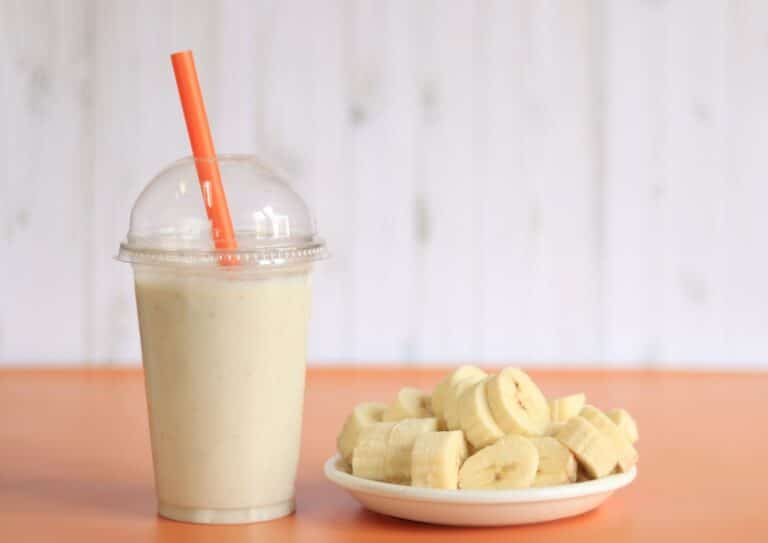
Macronutrient Balance: What Makes a Fat-Burning Smoothie
A fat-burning smoothie needs more than just fruit and liquid. It should be built around protein, fibre, and healthy fats to keep you full and stabilise blood sugar.
My Formula for a Fat-Loss Smoothie
| Component | Function | Examples |
|---|---|---|
| Protein | Satiety, muscle preservation | Whey, pea protein, Greek yoghurt |
| Fibre-rich carbs | Gut health, slow digestion | Banana, oats, chia seeds |
| Healthy fats | Hormone support, fullness | Almond butter, flaxseed |
| Liquid base | Hydration, texture | Unsweetened almond milk, water |
| Boosters | Metabolism, flavour | Cinnamon, matcha, cacao nibs |
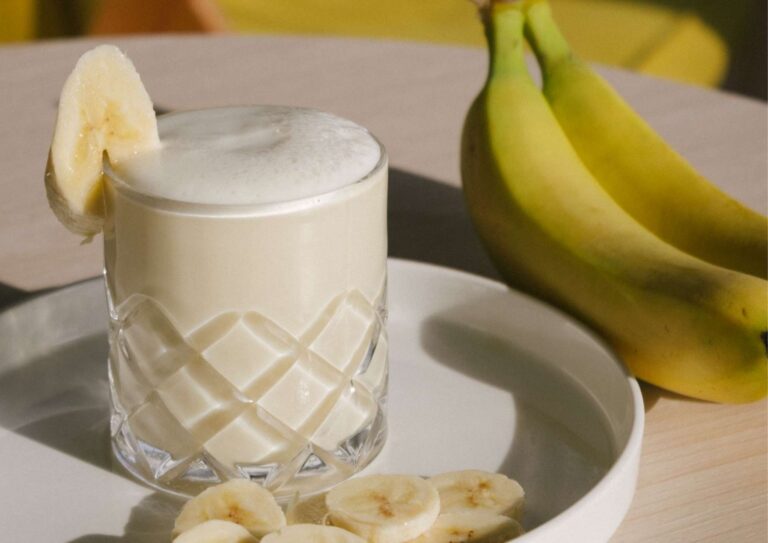
Recipe: High Protein Banana Smoothie
This is the exact recipe I use myself and recommend to clients. It’s ideal for breakfast, post-training, or a mid-afternoon pick-me-up.
Ingredients (Serves 1)
1 frozen banana (slightly underripe for resistant starch)
1 scoop vanilla whey or plant-based protein powder (~25g protein)
1 tbsp natural almond butter
1 tbsp chia seeds
¾ cup unsweetened almond milk
½ tsp cinnamon
Optional: 1 tsp matcha powder or cacao nibs
Instructions
Add all ingredients to a high-speed blender.
Blend until smooth and creamy.
Pour into a chilled glass and enjoy immediately.
Nutritional Breakdown (Approximate)
Calories: 320
Protein: 28g
Carbohydrates: 22g
Fat: 14g
Fibre: 8g
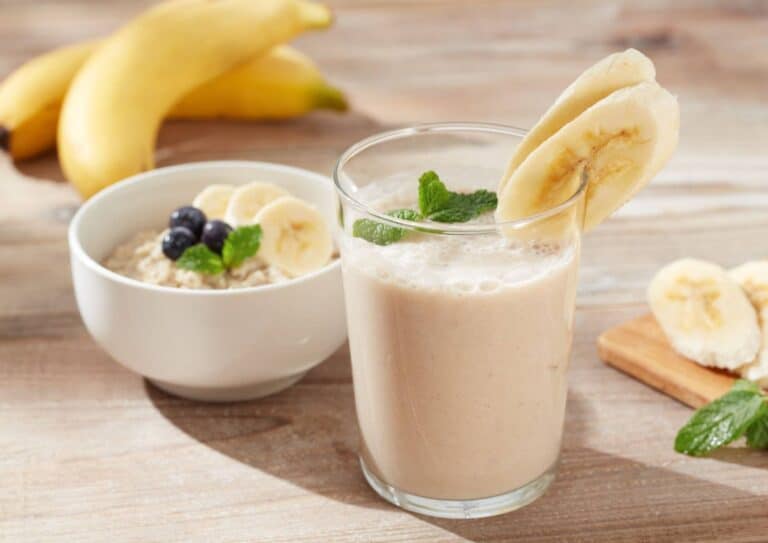
Timing and Usage for Optimal Results
When you drink your smoothie matters just as much as what’s in it.
Best Times to Use It
Morning: Kickstarts metabolism and curbs mid-morning cravings.
Post-workout: Replenishes glycogen and supports muscle recovery.
Afternoon slump: Prevents energy crashes and mindless snacking.
I don’t recommend having it too close to bedtime—protein and banana can be energising and may affect sleep quality.
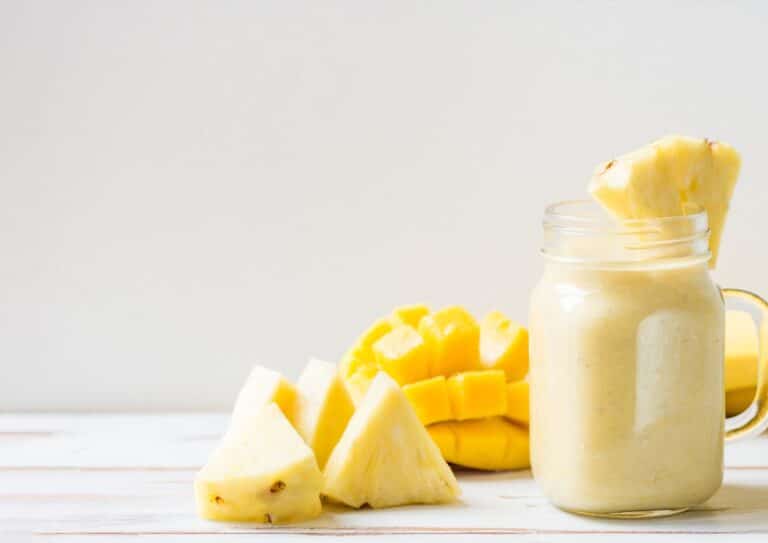
Common Pitfalls and How to Avoid Them
Even healthy smoothies can backfire if you’re not careful. Here are the mistakes I see most often:
What to Watch Out For
Too much fruit: Stick to one banana—adding mango or berries can spike sugar.
Sugary protein powders: Choose brands with less than 2g sugar per serve.
Skipping fats: Healthy fats slow digestion and improve satiety.
Using juice as a base: Adds unnecessary sugar and calories.
Not measuring portions: Smoothies can be calorie-dense—track ingredients.
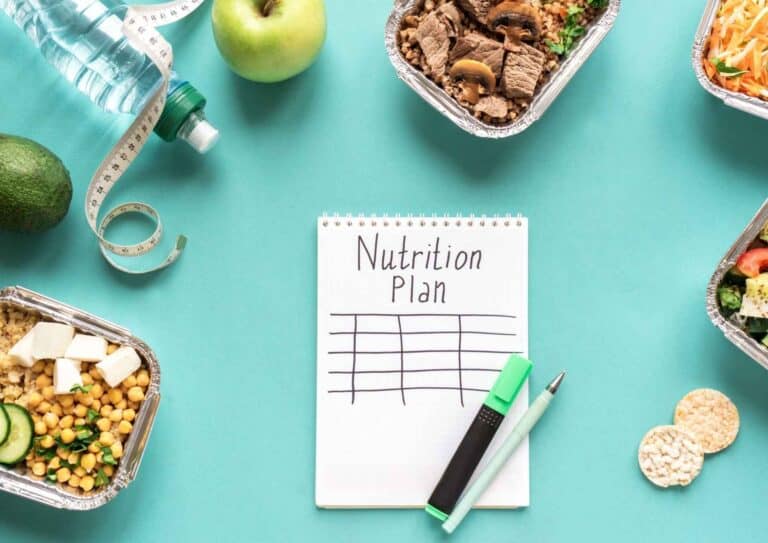
Bibliography
Leidy, H. J., et al. (2015). “The role of protein in weight loss and maintenance.” The American Journal of Clinical Nutrition, 101(6), 1320S–1329S.
Wycherley, T. P., et al. (2012). “Effects of energy-restricted high-protein, low-fat diets on weight loss and resting energy expenditure.” Obesity Reviews, 13(7), 581–590.
Slavin, J. L. (2013). “Fibre and prebiotics: mechanisms and health benefits.” Nutrients, 5(4), 1417–1435.
Johnston, C. S., et al. (2002). “Strategies for healthy weight loss: from vitamin C to the glycaemic response.” Journal of the American College of Nutrition, 21(6), 518S–523S.
Livesey, G. (2003). “Health potential of resistant starch.” Nutrition Bulletin, 28(2), 101–107.
